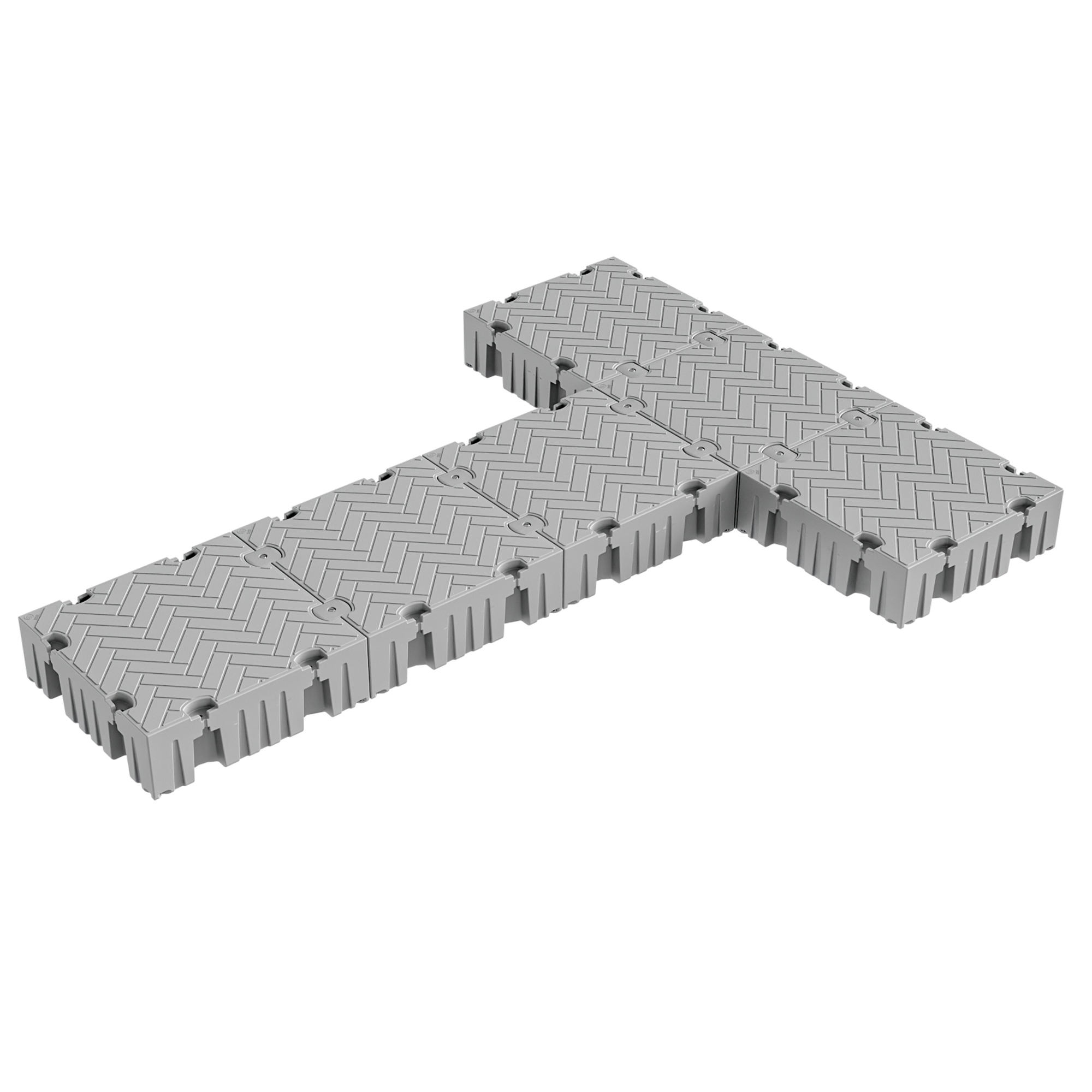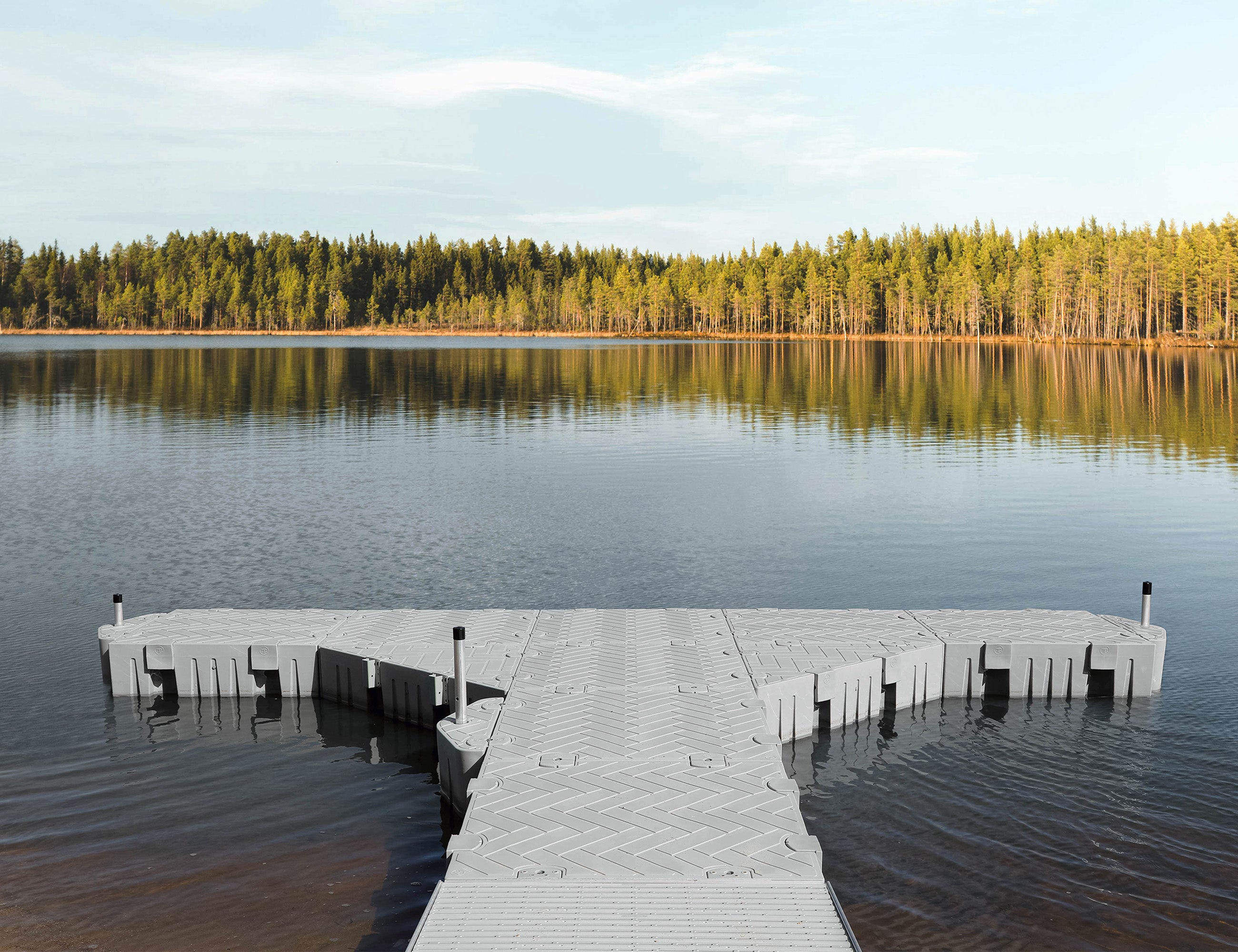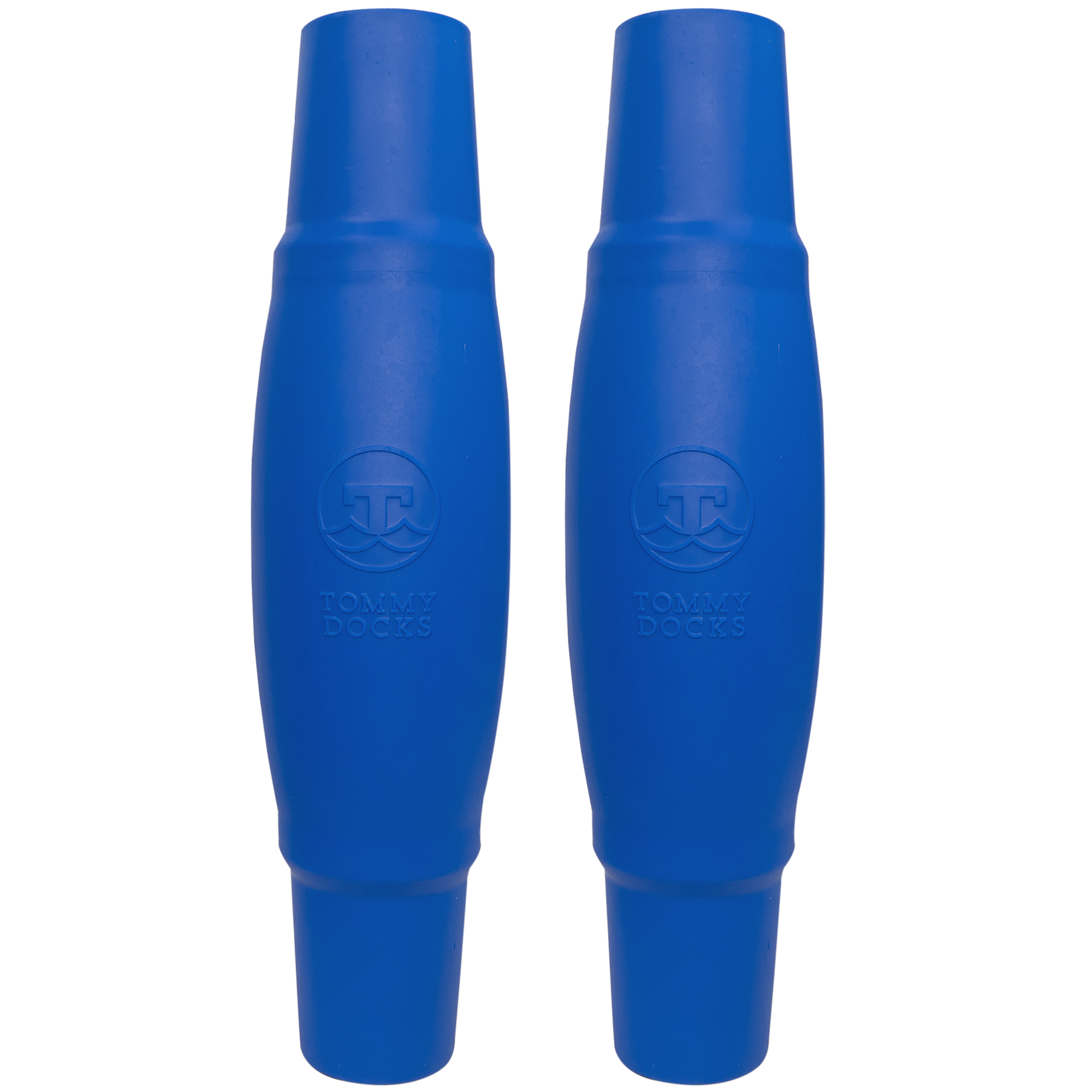Creating a sustainable dock involves more than just selecting the right materials; it also includes considering the environmental impact of these materials and the construction practices used. For those looking to blend functionality with eco-conscious choices, understanding the sustainability of materials like real wood and aluminum is crucial. Let’s explore how these materials can contribute to more environmentally friendly docking solutions.
Real Wood: A Natural Choice
When it comes to eco-friendliness, real wood is often celebrated for its natural origins and minimal chemical processing. Cedar, for instance, used by Tommy Docks in our prefab docks, stands out as a particularly appealing option. This wood type is not only renewable but also has a lower carbon footprint compared to plastics and composites. The key to maximizing the eco-friendliness of real wood lies in sourcing it responsibly.
Responsibly harvested wood ensures that the forestry practices used do not harm the ecosystem and that new trees are planted to replace those cut down. This cycle helps maintain the forest's biodiversity and carbon capture capabilities. In terms of durability, when treated and maintained properly, cedar can withstand the rigors of marine environments while aging gracefully and sustainably.
Aluminum: Durable and Recyclable
Aluminum is another excellent material for those interested in sustainable docking. Its biggest environmental benefit is its recyclability; aluminum can be recycled indefinitely without losing its properties. This means that using aluminum helps reduce waste and the need for new raw materials, which in turn decreases the environmental impact of mining and processing.
Moreover, aluminum is known for its durability and strength, making it an ideal material for dock frames especially. It resists corrosion and withstands various weather conditions, which is crucial for structures exposed to water. The lightweight nature of aluminum also makes it less energy-intensive to transport and install, further reducing its overall carbon footprint.
Best Practices for Sustainable Dock Installation
Choosing the right materials is just one part of creating a sustainable dock. How you install and maintain your dock also plays a significant role in its environmental impact. Here are a few practices that can help minimize this impact:
- Use Non-Toxic Sealants and Stains: For wooden docks, selecting eco-friendly, water-based products with low volatile organic compounds (VOCs) can protect the dock while minimizing water pollution.
- Efficient Use of Materials: Planning your dock layout to minimize waste can significantly reduce the environmental footprint. Consider designs that allow you to use standard lumber and aluminum lengths efficiently.
- Regular Maintenance: Keeping your dock in good condition not only extends its lifespan but also prevents pieces from breaking off and polluting the water body. Regular checks and timely repairs are essential.
- Consider Local Regulations and Ecosystems: Always ensure that your dock construction complies with local environmental regulations. It’s also beneficial to consider how the structure affects the local aquatic ecosystem and to choose designs that minimize disruption.
Tommy Docks For Your Sustainable Docking Needs
By focusing on sustainable materials like real wood and aluminum and adopting environmentally friendly practices, dock owners can significantly reduce the ecological footprint of their waterfront structures. Tommy Docks is committed to providing durable, eco-friendly docking solutions that meet these principles, offering a range of products that cater to the needs of environmentally conscious water enthusiasts. Whether you’re setting up a small floating platform or a comprehensive docking system, choosing the right materials and practices can make a big difference in preserving our waterways for future generations.






